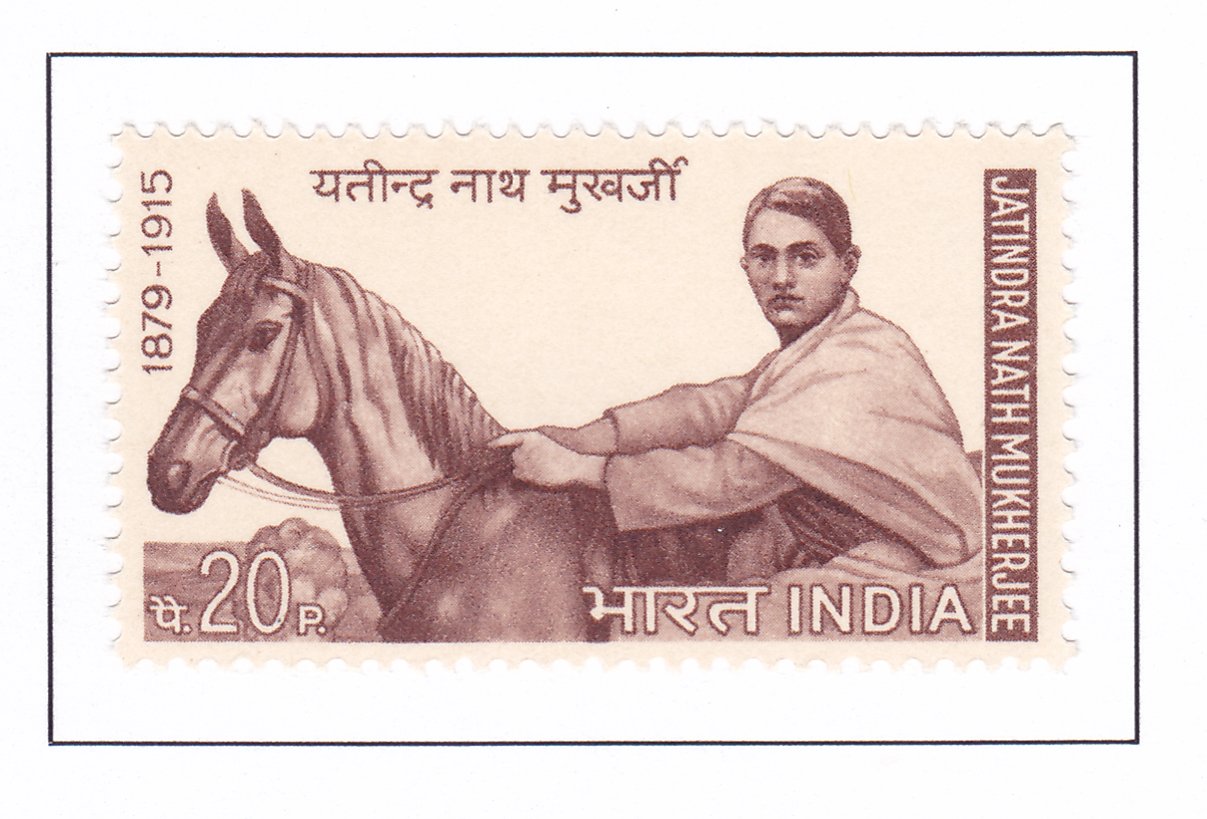Jatindra Nath Mukherjee

Technical Data
| Date of Issue | September 9, 1970 |
|---|---|
| Denomination | 20 nP |
| Quantity | 3,000,000 |
| Perforation | 14½ x 14 |
| Printer | Security Printing Press, Nashik |
| Watermark | No Watermark |
| Colors | Chocolate |
| Catalog Codes |
Michel IN 504 Stamp Number IN 520 Yvert et Tellier IN 303 Stanley Gibbons IN 618 |
| Themes | Animals (Fauna) | Commemoration | Equestrianism and horse riding | Heroes | Horses | Mammals | Revolutionaries |
Jatindra Nath Mukherjee, popularly known as Bagha Jatin, was a figure of legendary stature, igniting admiration and inspiration among the youth of India at the onset of the First World War. Born in December 1879 into a respected Brahmin family in Jessore, his upbringing instilled in him a blend of physical vigor, intellectual prowess, and moral courage.
Even in his youth, Jatin displayed extraordinary qualities of bravery and presence of mind, exemplified by his single-handed confrontation with a Royal Bengal Tiger in his village, a feat that earned him the nickname Bagha Jatin. His upbringing was marked by the influence of his father, Umesh Chandra, a scholar of great character, and his mother, Sharat Shashi Debi, a talented poet.
Jatin’s early encounters with the horse rushing down the streets of Krishnanagar showcased his instinctive courage and compassion. His encounters with Swami Vivekananda further shaped his worldview, leading him to believe that India’s spiritual rejuvenation was intrinsically linked to its political freedom.
Despite his professional obligations as a stenographer at the Bengal Secretariat, Jatin devoted himself to enlightening young minds about the sacred texts and fostering a deep sense of patriotism. His lectures extended beyond traditional scriptures to include the works of revolutionary thinkers, aiming to ignite a fervent love for the Motherland among his audience.
As the specter of war loomed in 1914, Jatin went underground, rumored to be preparing for an armed uprising against British rule. His idealism and dedication attracted the attention of Aurobindo Ghosh, who became an advisor in the revolutionary movement. Jatin’s involvement in organizing resistance during Aurobindo’s trial in the Alipore Bomb Conspiracy Case further cemented his reputation as a fearless patriot.
When plans for Indian revolutionaries to receive support from the German government were foiled, Jatin found himself hunted by British authorities. Despite being outnumbered and outgunned, Jatin and his comrades engaged in a valiant battle against the British forces on September 9, 1915, on the banks of the river Bura-Balam in Balasore District. Although mortally wounded, Jatin’s spirit remained indomitable until his last breath, inspiring generations to come in the struggle for independence.
The memory of Jatindra Nath Mukherjee, the fearless harbinger of national freedom, continues to be revered by the nation. The Indian Posts and Telegraphs Department honors his legacy by issuing a special commemorative stamp, paying silent homage to his invincible spirit and unwavering commitment to the cause of Indian independence.
